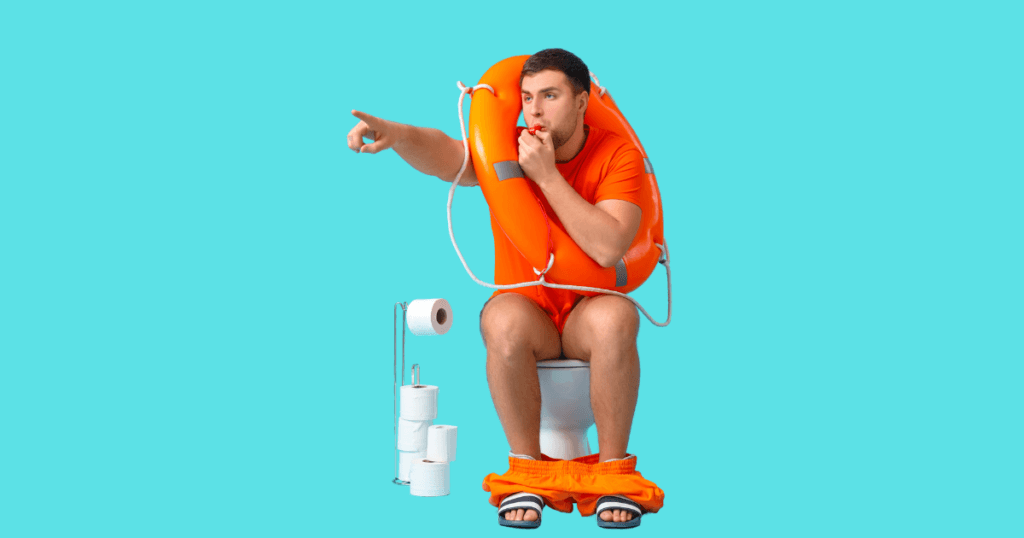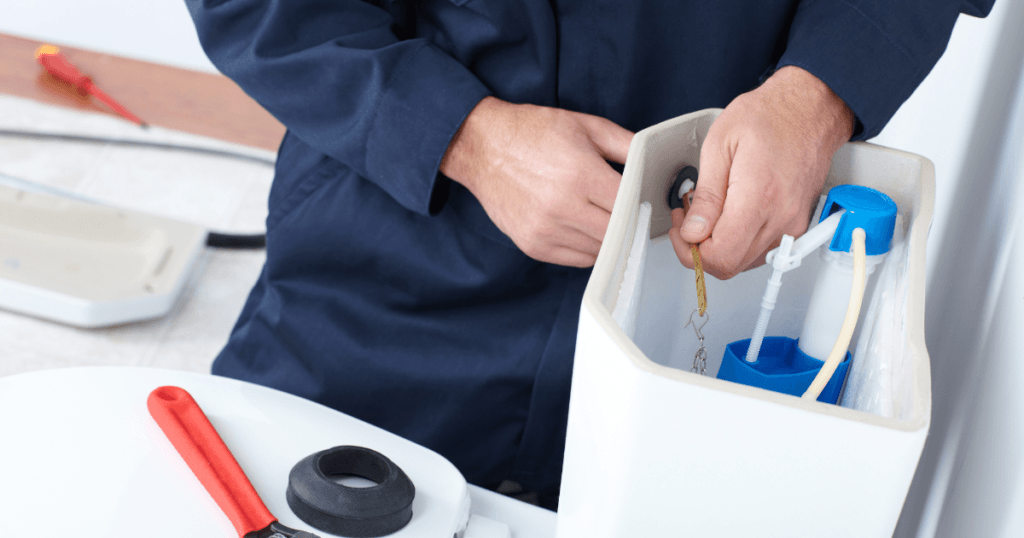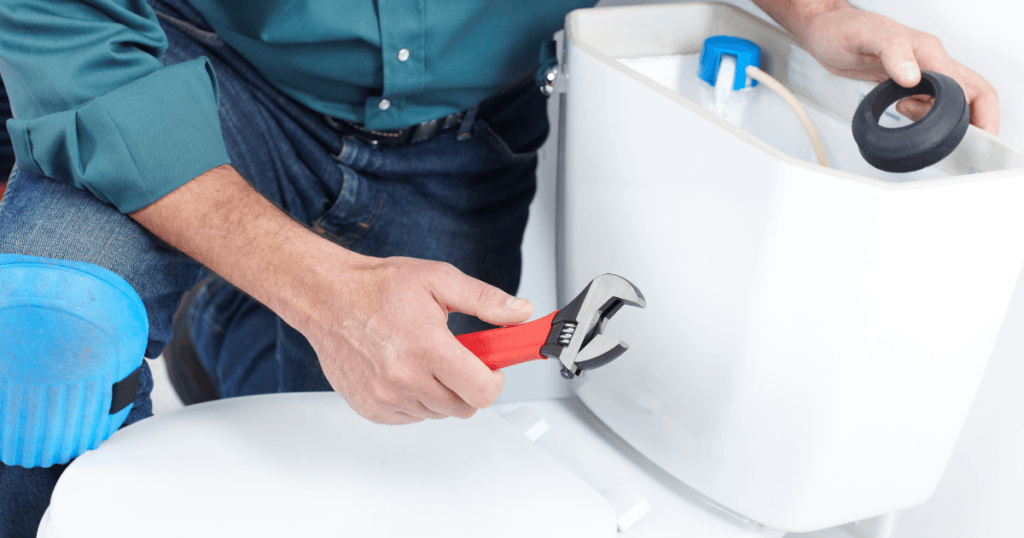
Have you ever heard a strange whistling sound coming from your bathroom and wondered if it’s a cause for concern? In this blog post, we’ll tackle the question, Is a Whistling Toilet Dangerous? Understanding the reasons behind that eerie whistling noise can help you determine if it’s a simple fix or something more serious. Join me as we explore the potential causes, dangers, and solutions to ensure your bathroom remains a safe and peaceful place.

So, Is a Whistling Toilet Dangerous?
So, is a whistling toilet dangerous? Generally, the answer is no. A whistling toilet isn’t dangerous, but it can be a sign of underlying issues that need attention. The whistling sound often indicates a problem with the fill valve or a partially closed shutoff valve. While these issues aren’t immediately hazardous, they can lead to inefficient water usage, higher bills, and potential damage over time if left unaddressed.
If you hear a whistling noise, it’s a good idea to investigate and resolve the problem to maintain your toilet’s functionality and peace of mind. So, while a whistling toilet isn’t dangerous, it’s definitely something you should fix sooner rather than later.
DIY Fixes for Whistling Toilets

When my toilet starts to whistle, I know it’s usually not dangerous, but it’s definitely annoying. I’m here to walk you through a couple of DIY fixes to silence that pesky noise without calling in the pros.
Simple Steps to Stop the Whistle
First, I always check the fill valve because it’s often the culprit. Here’s how I handle it:
- Identify the Whistle: I listen to find out if the noise is coming from the tank or the supply line
- Shut Off Water: Using the supply valve, I turn off the water to stop the flow.
- Empty the Tank: I flush the toilet to drain the water remaining in the tank.
- Inspect for Debris: With the empty tank, I look at the fill valve for any debris causing the whistling.
- Clean the Fill Valve: If I find gunk, I clean it with a small brush or cloth, which sometimes does the trick.
When to Replace Toilet Components
Sometimes, cleaning doesn’t cut it, and I must replace parts. Here’s when I roll up my sleeves for a bit of DIY action:
- Fill Valve: If it’s old or faulty, I’ll head to the hardware store for a new one. It’s an easy swap with a wrench and some patience.
- Worn-Out Flapper: I checked the flapper; if it’s not sealing correctly, I knew it was time for a replacement. I unhooked the old one and popped in a new one.
- Rubber Washers: If I spot deteriorated washers, especially in older systems, I replace them to prevent whistling and leaks.
I can usually fix the whistle myself by following these steps using basic tools like a wrench and pliers, saving time and money.
When to Call a Professional

Sometimes, fixing a whistling sound from my toilet is straightforward, like cleaning out some mineral deposits. However, there are times when I must recognize that I need the help of a professional plumber.
Assessing the Seriousness of the Issue
Before I decide to call a professional, I assess how serious the issue is. Here are a few red flags that signal it’s time to reach out:
- Persistent Whistling After DIY Attempts: If I’ve tried the common fixes, like cleaning the fill valve, and the whistling persists, it might indicate deeper issues.
- Signs of Water Damage: Any signs of leaks or water damage around the toilet can be a symptom of a failing component that needs expert attention.
- Complex Components: If the problem seems to be with intricate parts of the toilet’s internal mechanisms, I avoid tinkering with them as I might do more harm than good.
Finding a Qualified Plumber
I don’t just go for any plumber; I ensure they’re qualified for the task. Below is my checklist when searching for a professional plumber:
- License and Certification: A licensed plumber is trained to correctly diagnose and fix plumbing issues.
- Experience: Years of experience often mean a wealth of knowledge about various plumbing problems, including whistling toilets.
- Recommendations: I check online reviews or ask friends and family for a trusted professional plumber’s contact.
Here’s a simple table format I use to compare plumbing services:
| Plumber | License | Experience | Reviews | Estimated Cost |
|---|---|---|---|---|
| ABC Plumbing | Yes | 10 years | 4.5 stars | $$$ |
| XYZ Plumbers | Yes | 5 years | 4.7 stars | $$$$ |
| 123 Plumbing | No | 3 years | 3.9 stars | $$ |
After gathering the information, I call the one that gives me confidence in their ability to handle my repairs professionally and efficiently.
Preventative Measures and Maintenance

Keeping my toilet in tip-top shape can prevent that annoying whistle and the potential for more significant issues. Staying on top of maintenance and cleaning is the way to go.
Avoiding Future Whistles
I handle hard water issues to prevent my toilet from whistling again, as they can lead to mineral deposits in the tank components. I’ve found that installing a water softener can do wonders by minimizing those pesky deposits. Also, I keep an eye on the water pressure since too much pressure sometimes messes with the toilet’s inner workings, leading to that whistling sound.
Regular Check-Ups and Cleaning
Here’s my routine: I pop open the toilet tank every couple of months to check for worn parts. If there is any hint of damage, I’m on it – replacing parts before they give out. Cleaning is also a priority. I scrub away any mineral deposits with vinegar, ensuring the fill valve and other components stay clean. Regularly tackling these will keep whistling at bay and prolong my toilet’s lifespan.
Wrapping Up
After delving into the peculiar phenomenon of a whistling toilet, it’s clear that while it may seem benign, it signals underlying issues that shouldn’t be ignored. Is a Whistling Toilet Dangerous? At first glance, the answer leans toward a cautionary yes rather than an immediate threat to safety. The whistling noise typically arises from faulty components or obstructions within the toilet mechanism, hinting at necessary repairs or adjustments.
This sound serves as a warning that, if left unattended, it could lead to further damage or inefficiencies, potentially costing more in repairs and water bills. So, when faced with the question, Is a Whistling Toilet Dangerous? I’ve learned it’s not so much about immediate danger as it is about the potential for escalating problems. Addressing the whistling sound promptly can prevent the situation from worsening, ensuring your toilet’s longevity and proper functioning.
Why does my toilet make a whistling sound?
Your toilet whistles because something inside it isn’t working right. Just like when you blow a whistle, air and water move through parts of the toilet, making noise if those parts are broken or blocked.
Is a whistling toilet dangerous?
A whistling toilet isn’t dangerous like a scary movie, but it’s like a sign saying, “Please fix me!” If we don’t fix it, it might use more water than it needs or even break down later, which could be a bigger problem.
What should I do if my toilet starts whistling?
If your toilet starts whistling, tell an adult. It might need a new part or just a little fix. Fixing it can stop the whistling and help save water and money.
